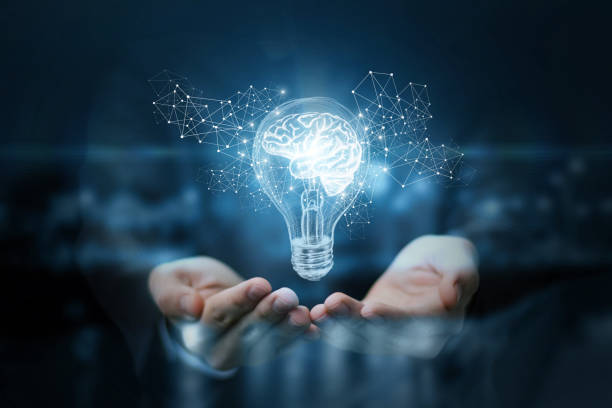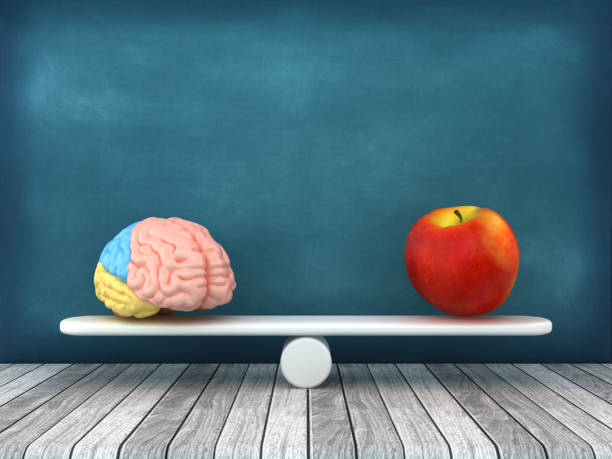Introduction
Today in this article we discuss The Connection Between Diet and Brain Health. In today’s age, every aspect of our life is directly related to our environment and surroundings. When it comes to health and fitness, mental health is not only about exercise or meditation, but also about our diet. Whatever we eat daily has an effect not only on our physical body but also on our mind.
This article will explore Ishi Talaq, whose one daughter diet can improve our mental health and improve our mental performance. We’ll mention some science-based research and expert opinions that agree with this.
1. Mind health approach

Mental health means that your mind is working well, your ability to think, understand, remember and make decisions is better. When brain health is impaired, it can lead to cognitive decline, Alzheimer’s disease, and dementia like dementia. In order to maintain mental health, it is important that we pay attention to our lifestyle and diet, so that our cognitive abilities remain good throughout life.
2. Balanced diet and brain function
A balanced diet, based on vegetables, fruits, nuts, seeds, fish, and whole grains, is essential for mental health. These foods provide your brain with the nutrients it needs to function at its best. Omega-3 fatty acids, antioxidants, vitamins, and minerals play an important role in growth, development, and protection. The more variety you include in your diet, the more nourishment your brain will receive.
3. Omega-3 fatty acids and the brain
Omega-3 fatty acids, found in fish, especially salmon, sardines and walnuts, are essential for brain health. These fatty acids strengthen the neuron connections in your brain, which are essential for learning and memory. Omega-3 fatty acids are also anti-inflammatory, which may play a role in reducing the risk of Alzheimer’s and dementia.
4. Role of antioxidants
Antioxidants, found in fruits and vegetables, especially berries, spinach, and dark chocolate, help protect against free radicals. Free radicals are molecules that damage skin cells and accelerate the aging process. Antioxidants protect your brain from free radicals, and reduce the risk of cognitive decline.
5. Vitamin B complex and cognition

Vitamin B complex, which consists of B6, B12 and folate, is vital for brain function. These vitamins regulate levels of homocysteine, an amino acid and high levels can cause cognitive decline and brain damage. These vitamins are commonly found in green leafy vegetables, eggs, meat, and dairy products.
6. The Age of the Mediterranean Diet
The Mediterranean diet is considered an ideal diet for mental health worldwide. This diet is based on olive oil, nuts, seeds, fish, fruits, vegetables, and whole grains. Studies have shown that people who follow a Mediterranean diet have a lower risk of cognitive decline and better mental health long into death. It also helps reduce inflammation and oxidative stress.
7. Nixon of processed foods
Processed foods, which are based on refined sugar, unhealthy fats and artificial ingredients, can be the ultimate bane of mental health. Foods and drinks can damage your brain function and accelerate cognitive decline. Studies have shown that those who eat the most log-processed foods are more likely to suffer from depression, anxiety and stress.
8. Hydration and brain function

Hydration, i.e. keeping your body hydrated by drinking water, is essential for brain health. Your brain is 75% water, and if it becomes dehydrated, your focus, attention, and memory can be affected. Drinking 8-10 glasses of water every day keeps your brain functioning optimally. Hydration also affects your energy levels and mood.
9. Sugar and mental health
Too much sugar can be bad for your brain. It can impair your cognitive abilities, and cause problems with memory and learning. Consuming natural sugars instead of refined sugars, the sugars found in fruits, are great for brain health. Therefore, the amount of sugar in your diet should be kept under control.
10. The gut-brain connection
A lot of research today suggests that your gut, your digestive system, and your brain are connected. What connection is called the gut-brain axis? Everything you eat affects your gut bacteria, which in turn affects your mood and cognitive function. Fermented foods and probiotics improve your gut health, which in turn improves your brain function.
11. The role of sleep and nutrition
Sleep and nutrition are also divorced from mental health. Good sleep is essential to restore and repair your brain. If your diet is rich in sleep-promoting nutrients such as magnesium and tryptophan, your sleep quality may improve. You can find these nutrients in nuts, seeds, and turkey meat. Your brain gets rid of toxins during sleep, and if you don’t get enough sleep, these toxins can affect your cognitive function.
12. Intermittent Fasting and Mental Health
The concept of intermittent fasting is very popular these days, and research has shown that it can also be beneficial for brain health. During fasting, your brain’s autophagy, the process of repairing damaged cells, turns up. Improves your memory and learning abilities, and reduces the risk of neurodegenerative diseases. But I must consult my doctor before fasting.
13. The role of exercise with diet
Along with diet, exercise is also important for mental health. Physical activity improves blood flow to your brain, improving its supply of oxygen and nutrients. Does it help in the growth and development of brain cells? Exercise, especially aerobic exercise, improves the functioning of your brain’s hippocampus, which is responsible for memory.
Conclusion
The Connection Between Diet and Brain Health. It is now common knowledge that your diet has a direct impact on the health of your brain. What you eat on a daily basis has a direct effect on your brain function, memory, and overall cognitive abilities. A balanced diet, hydration, and avoidance of processed foods are new lifeblood for brain health. By incorporating the dietary changes discussed in the article into your life, you can maintain your mental health and bring abundance to every aspect of your life.
